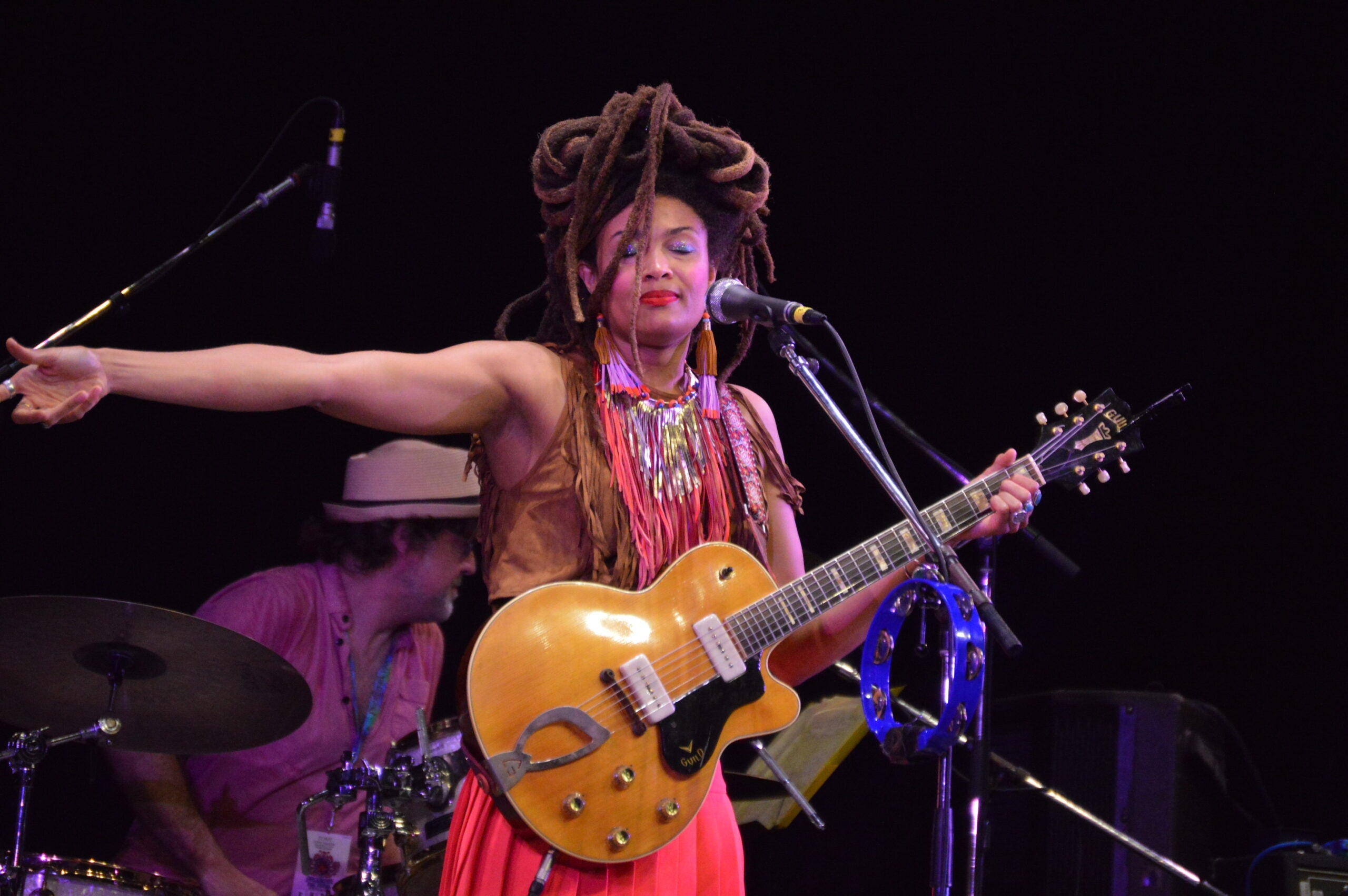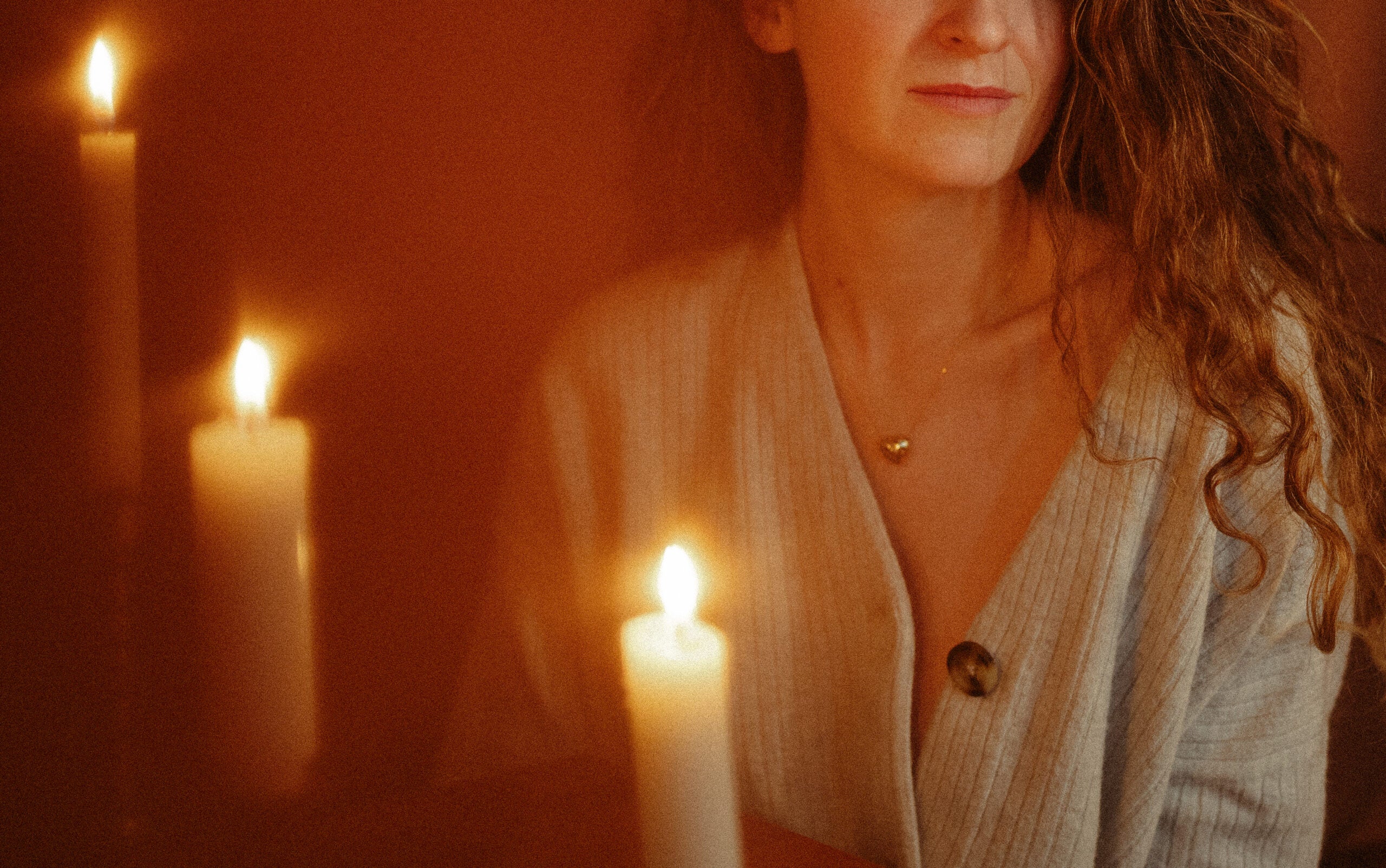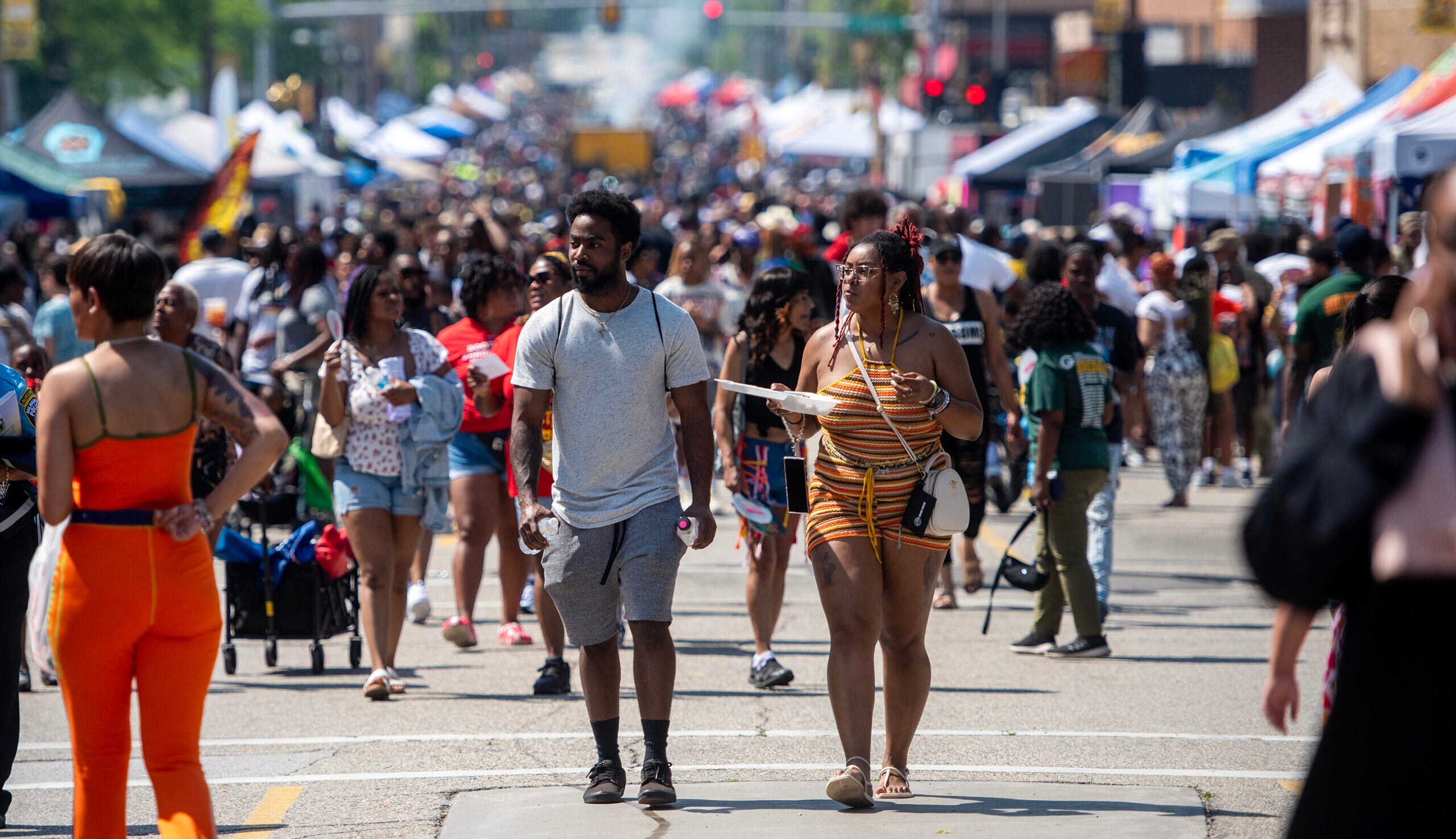Emmy-winning TV writer and producer Bill Oakley joins us to talk about his latest project, “Space: 1969,” starring Natasha Lyonne. Also, Francesca T. Royster on the history of Black country music. And Tracy Dawson shares the untold history of women who stuck it to the man…by dressing as men.
Featured in this Show
-
One small step for man. One giant leap for Bill Oakley.
It’s hard to find a more epochal moment in American history than the assassination of President John F. Kennedy. The global and political and historical reverberations from that devastating day in Dallas still haunt us today.
And for comedy writer Bill Oakley, Nov. 22, 1963 provides a thought experiment that’s rich for comedy with his new audio project, “Space: 1969,” for Audible Originals.
Oakley tells Wisconsin Public Radio’s “BETA” it’s a project he’s been toying with for some time.
“I’ve had this idea for at least 15 years in various, various forms and not so much the idea that you see — or, rather, that you hear — in the current version,” Oakley says.
The conceit behind “Space: 1969” is that Kennedy survived the attempt on his life in Dallas, presenting an alternative timeline of events. Kennedy ends the war in Vietnam and allocates the resources into the space race.
“It’s a sci-fi retro comedy, which puts it into three different niches,” says Oakley. “Which is why it would never be appropriate for television, but makes a fine audiobook.”
If the idea sounds familiar, it is. Oakley himself jokes that much of the inspiration comes from Stephen King’s revisionist history novel, “11/22/63” which deals with that exact conceit. Oakley adds his signature spin to the idea though — humor.
“I always thought it would be funny if, ‘Well, he survived, but he wasn’t quite right.’ And that’s kind of the premise of this whole series,” says Oakley. “John F. Kennedy survived the assassination attempt, but when he woke up, he wasn’t quite the same.”
If the idea isn’t wholly original, the presentation surely is. Oakley originally conceived of the idea as a TV project or perhaps an animation. But, being a veteran of television production, he knew the expense and the pitfalls of bringing this story to life in that medium. So, he pivoted to Audible and pitched it as a limited series audio story.
“This is a weird thing. Audible only has two types of things. They have audiobooks and podcasts. And up until a few hours before this thing was released, we still couldn’t figure out whether this was an audiobook or a podcast. So, it’s really like an old-time radio show,” Oakley says.
Writing for that medium presented several new challenges and inspirations for Oakley. With no visuals at his disposal, he ended up creating a new protagonist, voiced by “Russian Doll” star and creator, Natasha Lyonne.
“I wrote the whole thing with her in my head, with her saying every line, and we were lucky enough to actually get her. It was a remarkable occurrence,” Oakley says, unsure of what he would’ve done had Lyonne been unavailable.
“I’m sure we would have cast someone else, but it might not have been someone with the comic chops that Natasha has. Or I might have had to rewrite every nurse Nancy line, all 4,000 of them to accommodate a different actress,” he says.
The sheer scope of writing a 10-episode audio series was a far cry from anything Oakley had ever done before.
“It was an immense challenge. It took a lot of mapping out. I wanted a story that had a number of twists and turns that would keep the listener involved,” he explains.
“You’re tracking three major stories in this, and so I kind of intertwined the three stories so that each one would play off one another. And then also when there was a moment that each one of them had a cliffhanger towards the end of each episode,” Oakley continues. “This is the longest thing I ever wrote. I wrote this by myself, and the script was 552 pages. I mean, this was a lot of work.”
Oakley says this writing required a whole new level of self-discipline and that he relied a lot on the same process he used on the “Simpsons” to (Mr.) plow through it.
“The Simpsons was done almost as a radio show, and it does rely on a lot of audio initially before the animators come in. And so, I wrote this using ‘The Simpsons’ script format. It honestly was kind of just like writing a Simpsons script, except I had to describe stuff. Like you couldn’t rely on people seeing things. So, I made a joke out of that many times,” says Oakley.
“I decided that’s also why I needed a narrator,” he continues.
Without revealing spoilers, the narrator is another prominent ’60s personality that provides Oakley and his cast and sound designers a lot of opportunities to break the fourth wall for jokes.
All that hard work has paid off. Oakley is pleased with the early reviews of the series and has called it his best and funniest work. It also might be his most personal.
“I didn’t write it to please anybody but me. That’s the remarkable thing. It did not have to go through a development process like every other project I’ve ever done. And in this case, I was able to be incredibly self-indulgent. And I’m so glad that the audience has responded,” says Oakley.
It also looks as though it may spawn a sequel series tentatively titled “Space:1972,” which Oakley was fairly mum about.
“I have the story all worked out, and I won’t go into any more detail — but I will say that at the moment, it looks like it may actually happen, which is a thrill. I haven’t been too excited about any work developments in a very long time and writing ‘Space:1972’ is going to be absolutely fantastic,” he says.
-
Black artists reclaim their place in country music
It took nearly 300 years to create country music as we know it today. Folk music from countries in Europe and Africa, along with instruments brought to the new world from those far-off regions, blended and eventually became Appalachian music. In the South, as people moved west and the music with them, regional styles emerged, like Cajun in Louisiana, Texas country, cowboy ballads, Tejano music and others.
As the music expanded, the contributions of non-white musicians were swept aside. In the early 1920s, Bristol, Tennessee, became the accepted birthplace of country music, and Jimmie Rodgers was credited has been credited as its father.
Country music became the music of the South, mainly reflecting white southern values.
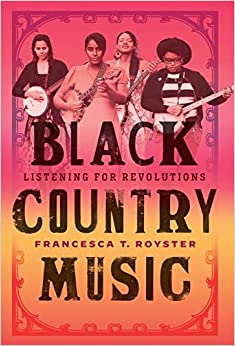
In recent years, the contributions of Black artists to country music have reemerged. More Black musicians have taken up the genre, and more Black people are listening.
Wisconsin Public Radio’s “BETA” talked with Francesca Royster about her recent book, Black Country Music. She sees changes on the horizon.
“I’ve seen all of these things coming together,” said Royster, “The music itself, new musicians, the conversations about the industry that were happening in certain venues among Black artists and music producers, and then the scholars and writers who are reflecting and intervening. So, it feels like an exciting moment right now.”
Some of the artists Royster highlights in her book include Lil Nas X, Charley Pride, Darius Rucker, Rhiannon Giddens and Tina Turner.
In the semi-autobiographical song “Nutbush City Limits,” Tina Turner blends Blues and R&B to create a scene of life in her Tennessee hometown, which follows the formula of many famous country songs.
Royster points out that “Turner is talking about her experience growing up in the South, and how feeling the tensions, but also the freedoms, of that landscape is a part of her story and a story that is shared by a lot of African Americans who have migrated from south to north.”
In the late 1960s, Charley Pride came to Nashville to start a career as a country singer. Pride was the first Black artist to become a country star in modern country music. But it was not easy.
“When Pride first came to Nashville to start his career, he visited Music Row and had trouble convincing people that he could be successful during this time. Just thinking about what was happening in the South during the civil rights moment, you can imagine some of the pressures he was facing,” Royster said.
One of the ways Pride found to release the tension at his shows was to acknowledge his Blackness to the mostly white audience in a humorous way.
In an interview with Dan Rather in November of 2015, Pride describes how he did it: “Here’s what we came up with: Ladies and gentlemen, I realize it’s a little unique, me coming out here on a country music show wearing this permanent tan.”
The struggles that Charlie Pride experienced becoming the first Black country superstar inspired new Black country artists like Darius Rucker, Jimmie Allen, Mickey Guyton and other contemporary artists and helped them find their way in the white-dominated country music world.
Another way Black artists are entering country music is by exploring the history of Black contributions to the genre. An example is Rhiannon Giddens, whom Royster highlights in her book.
“She’s always thinking about how to explore past music forms like the banjo and connecting them to African American history and lives and how to also think about how music is an important force for connecting communities,” she said.
Royster said she appreciates that Giddens plays a minstrel banjo — an instrument that has a lower tenor sound based on the banjos from 19th-century minstrel shows — “to get us to think about the history of blackface; minstrelsy, and the ways that it’s shaped popular music and contributed in some ways to the marginalization of Black creativity. So, she was reclaiming the banjo and using it to talk about Black history and stories.”
To Royster, more Black artists in country music will have the positive effect of uniting performers from different backgrounds and creating new sounds in country music.
“Black artists and ally artists like Brandi Carlile and others are working to create a more permanent place for Black artists,” Royster said. “I think that will necessarily also change how country music sounds in exciting ways.”
-
Tracy Dawson profiles brave women who stuck it to the man by dressing as men
Tracy Dawson is an award-winning actress and a TV writer who started her career at the Second City in Toronto.
She was a writer and lead actor on the Canadian sitcom “Call Me Fitz,” and went on to win the Gemini Award and the Canadian Screen Award (the Canadian version of the Emmys) for Best Lead Actress in a Comedy Series for her work opposite Jason Priestley on that show.
Dawson is also the author of “Let Me Be Frank: A Book About Women Who Dressed Like Men to Do Sh*t They Weren’t Supposed to Do.“
In her book, Dawson profiles brave women who stuck it to the man by dressing like men.
“I had all this research and I just started writing pages,” Dawson told Wisconsin Public Radio’s “BETA.“
Dawson, who had a script deal at the time with a major movie star, sent her writings to literary agents.
“So I felt like I could just say, like, ‘Hey, I got the script deal. I’m a TV writer in L.A., like, but I just thought this might be a book. Is this a book?’”
The literary agents told Dawson that it was indeed a book.
“It feels like a higher calling. I get to be funny. I get to exercise my voice, my creativity; but also, I really, really want to tell people about these women,” she said.
Ellen Craft
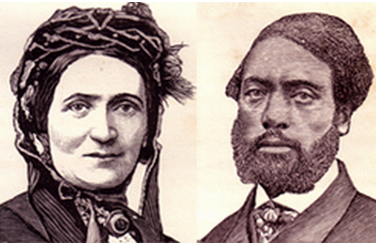
Ellen and William Craft. Wikimedia Commons Public Domain Dawson experienced various emotions while researching Ellen Craft’s story, including awe and anger that she’d never heard Craft’s story before.
“So Ellen Craft was a light-skinned, mixed-race, enslaved woman who escaped from her enslavement along with her husband. She was posing as a white male plantation owner, and her husband passed as her enslaved valet,” Dawson explained.
The couple traveled from Georgia up north to free Philadelphia.
“It’s the most incredible story of American history that should be known by everybody,” Dawson said, getting a little irked by the fact that there’s plenty of media coverage of folks who already enjoy plenty of time in the spotlight.
“Why is there a biopic about Elvis?” she said. “Sorry, I shouldn’t slam Elvis, but like, honestly, an Elvis biopic. And there’s no movie about Ellen Craft. Come on, you people,” she said.
Pauline Hopkins

Pauline Elizabeth Hopkins. Wikimedia Commons Public Domain Dawson said that Hopkins was one of the most prominent African-American writers and thinkers during her lifetime. Hopkins is featured in the “Anonymous Was a Woman” chapter, along with George Eliot and Louisa May Alcott.
“I wanted to include her because she took on male pseudonyms in her writing because she was so prolific, and she was such a part of that early African-American journal (“Colored American Magazine“),” Dawson said.
Dawson explained that Hopkins was so prolific that she used male pseudonyms for some of her pieces so it would not appear that she was the only staff writer.
Dawson said that she hopes people read about Pauline Hopkins and decide to seek out her work.
“She also wrote what some considered is the beginning of Afrofuturism and she created a world that some people have compared with Wakanda from ‘Black Panther,’” Dawson added.
Dorothy Lawrence
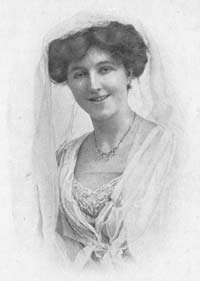
Dorothy Lawrence. Wikimedia Commons Public Domain If Dawson had to choose one woman in the book who resonates with her the most, it would be Dorothy Lawrence.
“Dorothy Lawrence was a young woman who wanted to be a journalist,” Dawson said.
Dorothy Lawrence was not satisfied writing women’s interest stories during World War I. She was obsessed with becoming a journalist and willing to risk her life by traveling to the front lines.
“She said, ‘I want to get to the front and I want to report on the war. And if I get a real scoop, then people are going to take me seriously,’” Dawson said of Lawrence.
After Lawrence was rejected by all the newspapers and the War Office, she “got a little bag put together and she put her bike on the ferry and she went over to France, which is unbelievably incredible to me, like the chutzpah,” Dawson said.
Lawrence spent weeks cycling around northern France. She realized that she had to get closer to the front and was not going to be able to accomplish that as a woman, so she made friends with a couple of solider from back home. They smuggled a khaki soldier’s uniform to her and gave her advice on how to walk like a man. One of them cut off her hair and she made it to the front.
Lawrence worked as a sapper, a combat engineer who performs various military engineering duties like breaching fortifications and inserting explosives into mines.
After about 10 days, she was discovered. She was then cross-examined and interrogated by many people and put into a nunnery. Eventually, she was released and sent home to England. Lawrence wrote a memoir, but it was not very successful.
“I guess it resonates so much with me because I’m someone that goes after things,” Dawson said. “I want something and I go after it and it doesn’t always work out. But she had such bravery to do that and I just feel like her story should have or could have gone a different way. It could have been like, ‘Oh, my gosh, you brave young, brash woman.’”
Editor’s note: Michele Good will read Dawson’s book on Wisconsin Public Radio’s Ideas Network on “Chapter A Day” at 12:30 p.m. and 11 p.m. on Jan. 17-23.
Episode Credits
- Doug Gordon Host
- Adam Friedrich Producer
- Steve Gotcher Producer
- Steve Gotcher Technical Director
- Bill Oakley Guest
- Francesca T. Royster Guest
- Tracy Dawson Guest
- Francesca T Royster Guest
Wisconsin Public Radio, © Copyright 2026, Board of Regents of the University of Wisconsin System and Wisconsin Educational Communications Board.
